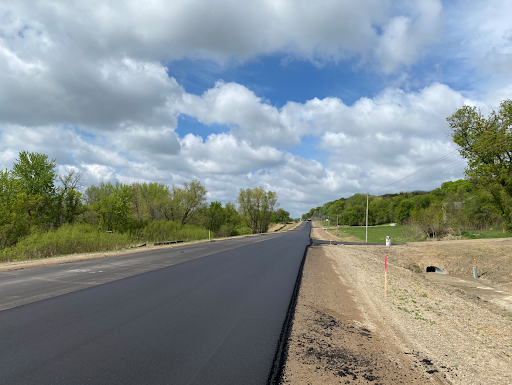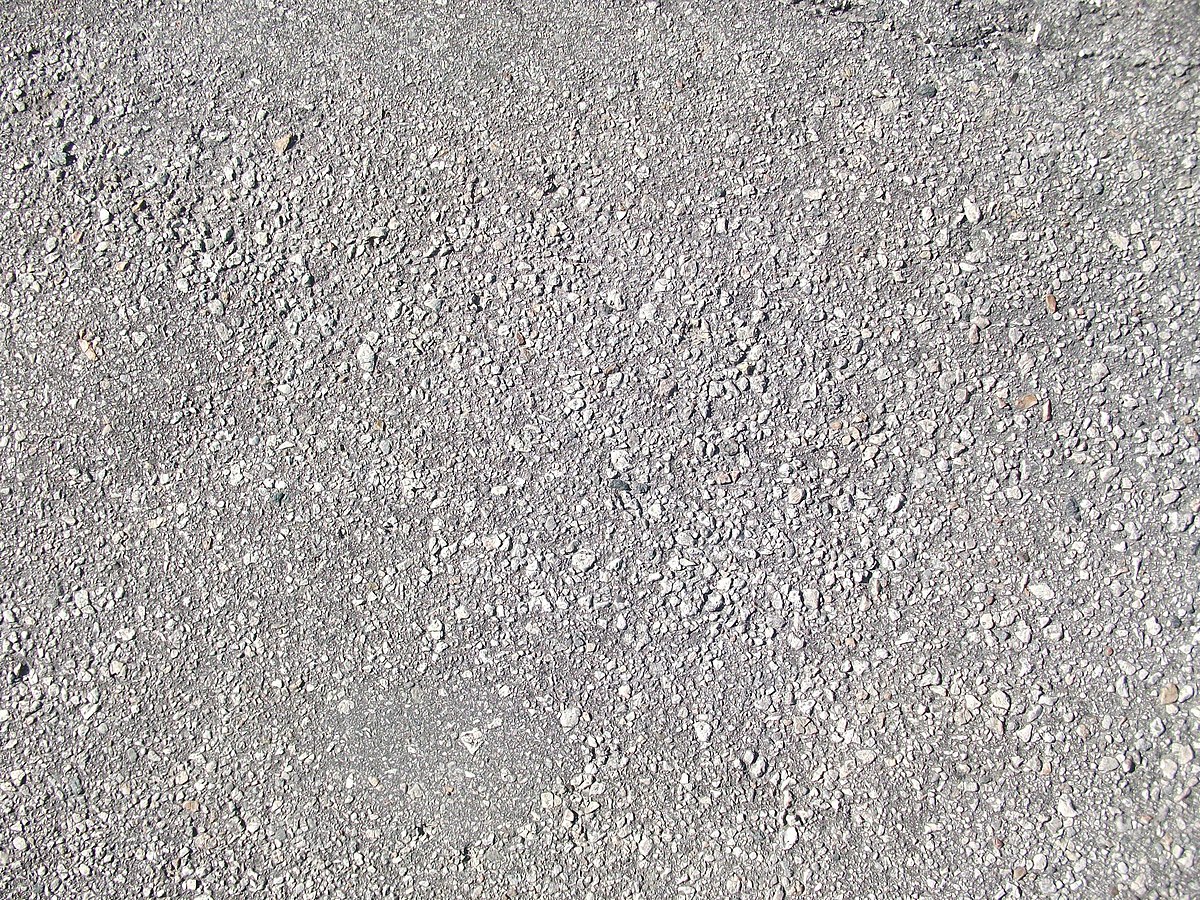Hot Mix Asphalt Paving: The Ultimate Remedy for Industrial Parking Lot Remodellings
Hot Mix Asphalt Paving: The Ultimate Remedy for Industrial Parking Lot Remodellings
Blog Article
Discovering the Environmental Benefits of Warm Mix Asphalt
The usage of Hot Mix Asphalt in infrastructure jobs offers a compelling case for sustainable advancement and ecological stewardship. By diving into the elaborate information of its manufacturing processes and the innovative usage of recycled materials, a deeper understanding emerges of just how this technology surpasses mere surface area applications. The environmental benefits of Hot Mix Asphalt prolong much beyond initial perceptions, offering a nuanced point of view on just how this material can lead the means for a greener future.

Lowered Greenhouse Gas Emissions
Hot Mix Asphalt production uses a considerable decrease in greenhouse gas emissions contrasted to various other sidewalk materials. The manufacturing procedure of Hot Mix Asphalt entails warming the combination of aggregate and asphalt binder to heats. This process requires much less energy compared to the manufacturing of alternative pavement materials, leading to reduced greenhouse gas emissions. Additionally, making use of recycled materials in Warm Mix Asphalt better adds to minimizing its ecological effect. By integrating redeemed asphalt pavement and recycled asphalt tiles right into the mix, the need for virgin materials is minimized, leading to energy savings and lowered emissions related to removal and processing.
Researches have actually shown that Warm Mix Asphalt pavements have a smaller sized carbon impact over their life cycle compared to various other sidewalk alternatives. The durability and recyclability of Warm Mix Asphalt additionally boost its ecological benefits by minimizing the demand for regular upkeep or substitute, thus preserving sources and decreasing exhausts related to restoration tasks.
Power Efficiency and Preservation
The manufacturing procedure of Warm Mix Asphalt not just lowers greenhouse gas emissions but likewise adds dramatically to power performance and conservation initiatives. Power efficiency is a vital benefit of Warm Mix Asphalt manufacturing compared to various other sidewalk types. The process involves warming the materials at heats to produce the asphalt mix, which requires much less power than different techniques. Furthermore, the capability to recycle and reuse asphalt sidewalk additionally boosts power preservation. By integrating recovered asphalt pavement (RAP) right into brand-new blends, the industry saves energy that would have been required to generate totally brand-new materials. The longevity of Hot Mix Asphalt decreases the regularity of maintenance and restoration, leading to long-lasting energy financial savings. This long life reduces the energy-intensive processes included in regular repair work and replacements. Generally, Warm Mix Asphalt stands apart as an environmentally friendly alternative that prioritizes energy efficiency and preservation throughout its lifecycle.
Lasting Pavement Solutions

One secret aspect of sustainable sidewalk options is using recycled products such as reclaimed asphalt pavement (RAP) and recycled asphalt roof shingles (RAS) By integrating these materials right into the asphalt mixes, the demand for virgin resources is reduced, leading to reduced energy usage and greenhouse gas emissions during production. Additionally, the reuse of these materials assists divert waste from land fills, adding to a much more circular and lasting economic climate.
In addition, lasting sidewalk options focus on maximizing sidewalk style to improve performance and durability. Strategies such as cozy mix asphalt (WMA) and stone mastic asphalt (SMA) boost the resilience and resilience of sidewalks, decreasing the requirement for regular repair work and click here to find out more replacements. By implementing these ingenious techniques, facilities designers can develop sidewalks that not just fulfill high-performance standards but additionally decrease their ecological footprint.
Minimized Environmental Impact
Hot mix asphalt, in certain, offers a number of benefits that contribute to reducing the general environmental footprint of road framework. One key element is the recyclability of asphalt, which can be recycled multiple times without jeopardizing its quality - Regrading.
Furthermore, the production of warm mix asphalt gives off lower levels of greenhouse gases contrasted to other pavement materials, making it an extra ecologically pleasant choice. The power effectiveness of asphalt plants has actually also boosted over the years, bring about minimized gas intake and lower exhausts. Furthermore, the smooth surface of warm mix asphalt decreases rolling resistance for lorries, leading to lower fuel usage and reduced air contamination from lorry emissions.
Contribution to Climate Modification Mitigation
Warm mix asphalt plays a critical function in mitigating climate adjustment via its lasting residential properties and minimized environmental impact. One substantial contribution to climate change reduction comes from the power efficiency of warm mix asphalt manufacturing. Compared to other sidewalk alternatives, the production procedure for hot mix asphalt eats less energy and produces lower degrees of greenhouse gases, therefore reducing its total carbon footprint.
Moreover, warm mix asphalt's ability to show sunlight, understood as albedo, Recommended Reading assists in reducing city warm island impacts. By decreasing warmth absorption and retention, hot mix asphalt pavements can reduce the demand for cooling in city areas, as a result lowering greenhouse gas discharges related to energy usage for cooling down objectives.
Additionally, the resilience and recyclability of warm mix asphalt better enhance its climate modification mitigation capabilities. Regrading. The lengthy life expectancy of asphalt pavements reduces the need for frequent fixings or substitutes, inevitably decreasing the carbon emissions connected to road maintenance tasks. In addition, the recyclability of asphalt products minimizes the demand for virgin sources and lowers the ecological influence of pavement building, aligning with sustainable methods for environment modification reduction.
Final Thought
In verdict, the environmental benefits of Warm Mix Asphalt show its substantial contribution to decreasing greenhouse gas discharges, preserving energy, and reducing environmental impact. This sustainable pavement solution aligns with climate modification reduction initiatives, advertises resource conservation, and enhances infrastructure development. By making use of recycled materials, energy-efficient manufacturing processes, and resilient design, Warm Mix Asphalt plays an important role in fostering a much more eco-friendly method to infrastructure building and construction.
The manufacturing procedure of Hot Mix Asphalt includes heating up the combination of aggregate and asphalt binder to high temperature levels. By incorporating reclaimed asphalt pavement and recycled asphalt shingles right into the mix, the demand for virgin products is lowered, leading to power savings and lowered emissions associated with extraction and handling.
One trick element of sustainable sidewalk solutions is website here the usage of recycled materials such as reclaimed asphalt sidewalk (RAP) and recycled asphalt roof shingles (RAS) Methods such as warm mix asphalt (WMA) and stone mastic asphalt (SMA) improve the resilience and durability of pavements, minimizing the requirement for constant repair work and substitutes. Contrasted to various other pavement alternatives, the manufacturing process for hot mix asphalt eats less energy and produces lower levels of greenhouse gases, hence minimizing its general carbon footprint.
Report this page